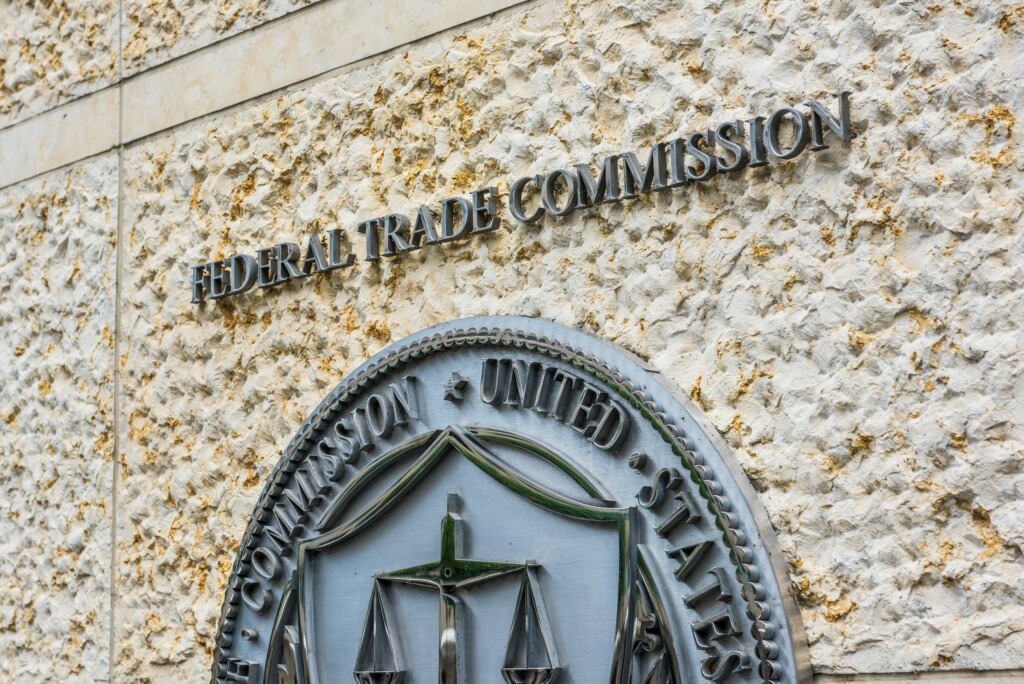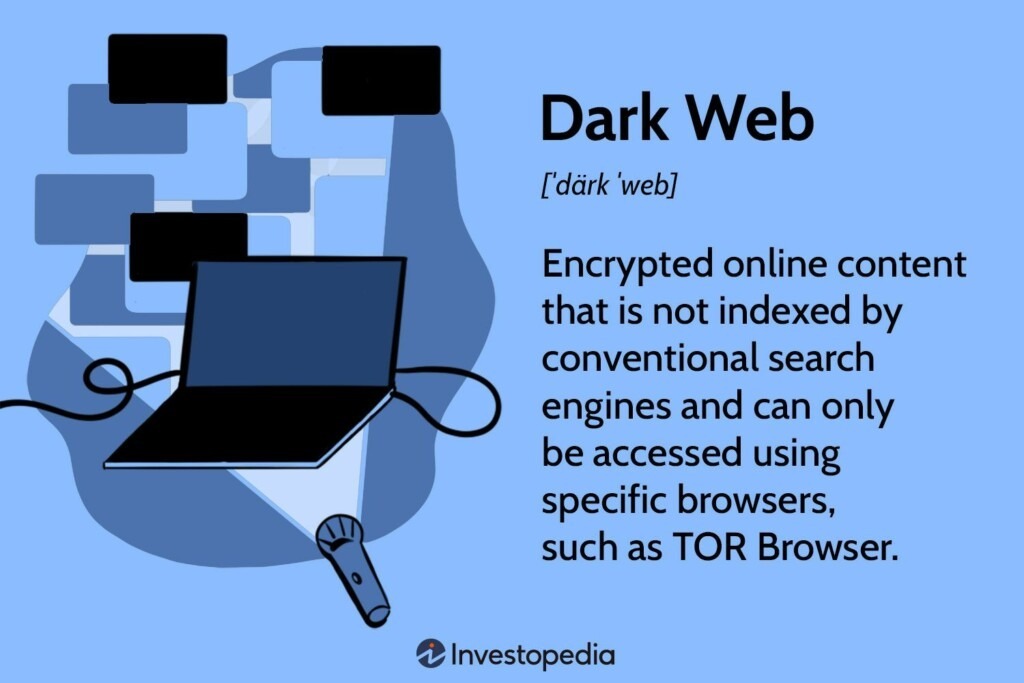A Beginner’s Guide to the Dark Web for Investigators
By Oxana Korzun, CFE, Fraud Expert / Investigations and Risk Management – San Francisco, California
A Short Instruction On How To Find Information On The Dark Web For OSINT Purposes
Many times, an investigation would lead me to the Dark Web. Sometimes it’s to dive into forums and gather intelligence, and other times it would be to check illegal goods markets selling counterfeit products of my clients.
Every time I mention that I use the Dark Web, people imagine a really scary place with criminals selling their goods right and left and that people can suffer dire consequences even for trying to open websites there.
Other people ask if it’s even legal to access it. It’s not illegal, and the right precautions and tools make it a safe enough place and a source of abundant information not searchable through traditional means.
Step 1. Get the Tor Browser
The Tor Browser provides access to .onion websites and is pretty good for browsing anonymously. The browser usually opens with the DuckDuckGo search engine which adds an additional layer of protection. It behaves as a regular browser and all surface websites can be open as well. The downside is that Tor is painfully slow.
Step 2. Install a Virtual Private Network (VPN)
VPNs mask users’ IP addresses and add more anonymity. There are many free VPNs, but they limit the number of countries that can be used to hide IPs. They are easy to use and can be activated with a one-click button. Browsers also have VPN extensions. VPNs still can log data so their use doesn’t make users completely anonymous (for example, Onavo Project, a free VPN, was collecting user data and giving it to Meta, both companies were sued and had to pay $10 million each).
Using them also can slow down the browsing process significantly.
Step 3. Find a List of Websites to visit
There is no one centralized place to find all Dark Web websites but many directories try to keep their databases updated. Hidden Wiki, OnionLinks are popular darknet directories (links to be opened in Tor). Investigators can also use dark web search engines like Ahmia or Haystack (to be opened in TOR). Many databases haven’t been updated for some time, and new Dark Web sites appear and disappear every day, so aggregators’ data needs to be re-checked.
If a website doesn’t open today, it still might work tomorrow. There is a service to check if the most popular darknet websites are down and find new links when the old ones don’t work.
Forums and chats are also great places to find information about the subject. Marketplaces are useful as well, but they contain mostly illegal content.
There is also Hunchly, a service I wrote about in my previous post, that provides a free daily dark report with new websites collected in a spreadsheet.
Things to Keep in Mind
Anonymity is incredibly important on the Dark Web. Using Tor and VPNs doesn’t make it 100% safe. It’s always a good idea to back up your computer data and check for malware and viruses on a regular basis. Some investigators use virtual machines or clean computers just for the Dark Web. Users should never share any information that can unveil their identity including email addresses, usernames, photos, and other easily searchable information.
Any data extracted from the darknet can be used in an investigation only after cross-checking and source verification. Criminals, hackers, law enforcement, and tyrannical governments can be all in one space and share fake information.
Find more about fraud and investigations in the Investigator Blog
More:
- The Tor Browser (torproject.org)
- Onavo Project (accc.gov.au)
- The Investigator Blog
- Fraud’s Dark Matter: The Universe of Scams Most of Us Never Know About (romancescamsnow.com)
- Darknet Cybercrime is Exploding in Southeast Asia (romancescamsnow.com)
- Hidden Wiki (zqktlwiuavvvqqt4ybvgvi7tyo4hjl5xgfuvpdf6otjiycgwqbym2qad.onion) – open in TOR
- OnionLinks (jaz45aabn5vkemy4jkg4mi4syheisqn2wn2n4fsuitpccdackjwxplad.onion) – open n TOR
- Ahmia (juhanurmihxlp77nkq76byazcldy2hlmovfu2epvl5ankdibsot4csyd.onion) – open in TOR
- Haystack (haystak5njsmn2hqkewecpaxetahtwhsbsa64jom2k22z5afxhnpxfid.onion) – open in TOR
- report (hunch.ly)
- What Is the Dark Web and Should You Access It? (investopedia.com)
SCARS Resources:
- For New Victims of Relationship Scams newvictim.AgainstScams.org
- Subscribe to SCARS Newsletter newsletter.againstscams.org
- Sign up for SCARS professional support & recovery groups, visit support.AgainstScams.org
- Find competent trauma counselors or therapists, visit counseling.AgainstScams.org
- Become a SCARS Member and get free counseling benefits, visit membership.AgainstScams.org
- Report each and every crime, learn how to at reporting.AgainstScams.org
- Learn more about Scams & Scammers at RomanceScamsNOW.com and ScamsNOW.com
- Global Cyber Alliance ACT Cybersecurity Tool Website: Actionable Cybersecurity Tools (ACT) (globalcyberalliance.org)
- Self-Help Books for Scam Victims are at shop.AgainstScams.org
- Donate to SCARS and help us help others at donate.AgainstScams.org
- Worldwide Crisis Hotlines: International Suicide Hotlines – OpenCounseling : OpenCounseling
- Campaign To End Scam Victim Blaming – 2024 (scamsnow.com)
More ScamsNOW.com Articles
-/ 30 /-
What do you think about this?
Please share your thoughts in a comment below!
SCARS LINKS: AgainstScams.org RomanceScamsNOW.com ContraEstafas.org ScammerPhotos.com Anyscam.com ScamsNOW.com
reporting.AgainstScams.org support.AgainstScams.org membership.AgainstScams.org donate.AgainstScams.org shop.AgainstScams.org
youtube.AgainstScams.org linkedin.AgainstScams.org facebook.AgainstScams.org
TABLE OF CONTENTS
CATEGORIES
![NavyLogo@4x-81[1] A Beginner's Guide to the Dark Web for Investigators](https://scamsnow.com/wp-content/uploads/2025/04/NavyLogo@4x-811.png)
ARTICLE META
Important Information for New Scam Victims
- Please visit www.ScamVictimsSupport.org – a SCARS Website for New Scam Victims & Sextortion Victims.
- SCARS Institute now offers its free, safe, and private Scam Survivor’s Support Community at www.SCARScommunity.org – this is not on a social media platform, it is our own safe & secure platform created by the SCARS Institute especially for scam victims & survivors.
- SCARS Institute now offers a free recovery learning program at www.SCARSeducation.org.
- Please visit www.ScamPsychology.org – to more fully understand the psychological concepts involved in scams and scam victim recovery.
If you are looking for local trauma counselors, please visit counseling.AgainstScams.org
If you need to speak with someone now, you can dial 988 or find phone numbers for crisis hotlines all around the world here: www.opencounseling.com/suicide-hotlines
Statement About Victim Blaming
Some of our articles discuss various aspects of victims. This is both about better understanding victims (the science of victimology) and their behaviors and psychology. This helps us to educate victims/survivors about why these crimes happened and not to blame themselves, better develop recovery programs, and help victims avoid scams in the future. At times, this may sound like blaming the victim, but it does not blame scam victims; we are simply explaining the hows and whys of the experience victims have.
These articles, about the Psychology of Scams or Victim Psychology – meaning that all humans have psychological or cognitive characteristics in common that can either be exploited or work against us – help us all to understand the unique challenges victims face before, during, and after scams, fraud, or cybercrimes. These sometimes talk about some of the vulnerabilities the scammers exploit. Victims rarely have control of them or are even aware of them, until something like a scam happens, and then they can learn how their mind works and how to overcome these mechanisms.
Articles like these help victims and others understand these processes and how to help prevent them from being exploited again or to help them recover more easily by understanding their post-scam behaviors. Learn more about the Psychology of Scams at www.ScamPsychology.org
SCARS INSTITUTE RESOURCES:
If You Have Been Victimized By A Scam Or Cybercrime
♦ If you are a victim of scams, go to www.ScamVictimsSupport.org for real knowledge and help
♦ SCARS Institute now offers its free, safe, and private Scam Survivor’s Support Community at www.SCARScommunity.org/register – this is not on a social media platform, it is our own safe & secure platform created by the SCARS Institute especially for scam victims & survivors.
♦ Enroll in SCARS Scam Survivor’s School now at www.SCARSeducation.org
♦ To report criminals, visit https://reporting.AgainstScams.org – we will NEVER give your data to money recovery companies like some do!
♦ Follow us and find our podcasts, webinars, and helpful videos on YouTube: https://www.youtube.com/@RomancescamsNowcom
♦ Learn about the Psychology of Scams at www.ScamPsychology.org
♦ Dig deeper into the reality of scams, fraud, and cybercrime at www.ScamsNOW.com and www.RomanceScamsNOW.com
♦ Scam Survivor’s Stories: www.ScamSurvivorStories.org
♦ For Scam Victim Advocates visit www.ScamVictimsAdvocates.org
♦ See more scammer photos on www.ScammerPhotos.com
You can also find the SCARS Institute’s knowledge and information on Facebook, Instagram, X, LinkedIn, and TruthSocial
Psychology Disclaimer:
All articles about psychology and the human brain on this website are for information & education only
The information provided in this and other SCARS articles are intended for educational and self-help purposes only and should not be construed as a substitute for professional therapy or counseling.
Note about Mindfulness: Mindfulness practices have the potential to create psychological distress for some individuals. Please consult a mental health professional or experienced meditation instructor for guidance should you encounter difficulties.
While any self-help techniques outlined herein may be beneficial for scam victims seeking to recover from their experience and move towards recovery, it is important to consult with a qualified mental health professional before initiating any course of action. Each individual’s experience and needs are unique, and what works for one person may not be suitable for another.
Additionally, any approach may not be appropriate for individuals with certain pre-existing mental health conditions or trauma histories. It is advisable to seek guidance from a licensed therapist or counselor who can provide personalized support, guidance, and treatment tailored to your specific needs.
If you are experiencing significant distress or emotional difficulties related to a scam or other traumatic event, please consult your doctor or mental health provider for appropriate care and support.
Also read our SCARS Institute Statement about Professional Care for Scam Victims – click here
If you are in crisis, feeling desperate, or in despair, please call 988 or your local crisis hotline – international numbers here.
More ScamsNOW.com Articles
A Question of Trust
At the SCARS Institute, we invite you to do your own research on the topics we speak about and publish. Our team investigates the subject being discussed, especially when it comes to understanding the scam victims-survivors’ experience. You can do Google searches, but in many cases, you will have to wade through scientific papers and studies. However, remember that biases and perspectives matter and influence the outcome. Regardless, we encourage you to explore these topics as thoroughly as you can for your own awareness.


























![scars-institute[1] A Beginner's Guide to the Dark Web for Investigators](https://scamsnow.com/wp-content/uploads/2025/04/scars-institute1.png)

![niprc1.png1_-150×1501-1[1] A Beginner's Guide to the Dark Web for Investigators](https://scamsnow.com/wp-content/uploads/2025/04/niprc1.png1_-150x1501-11.webp)